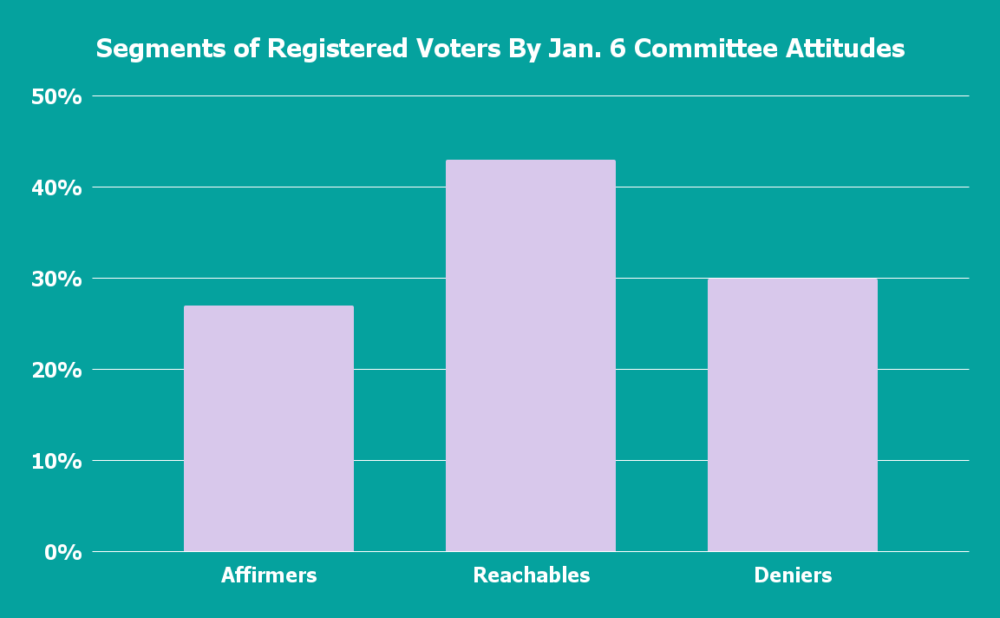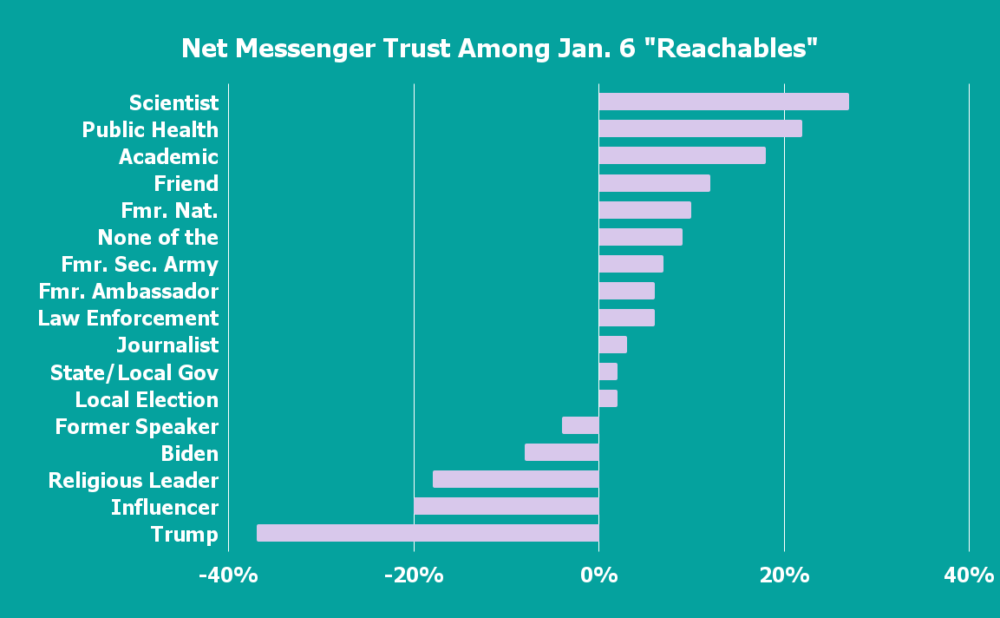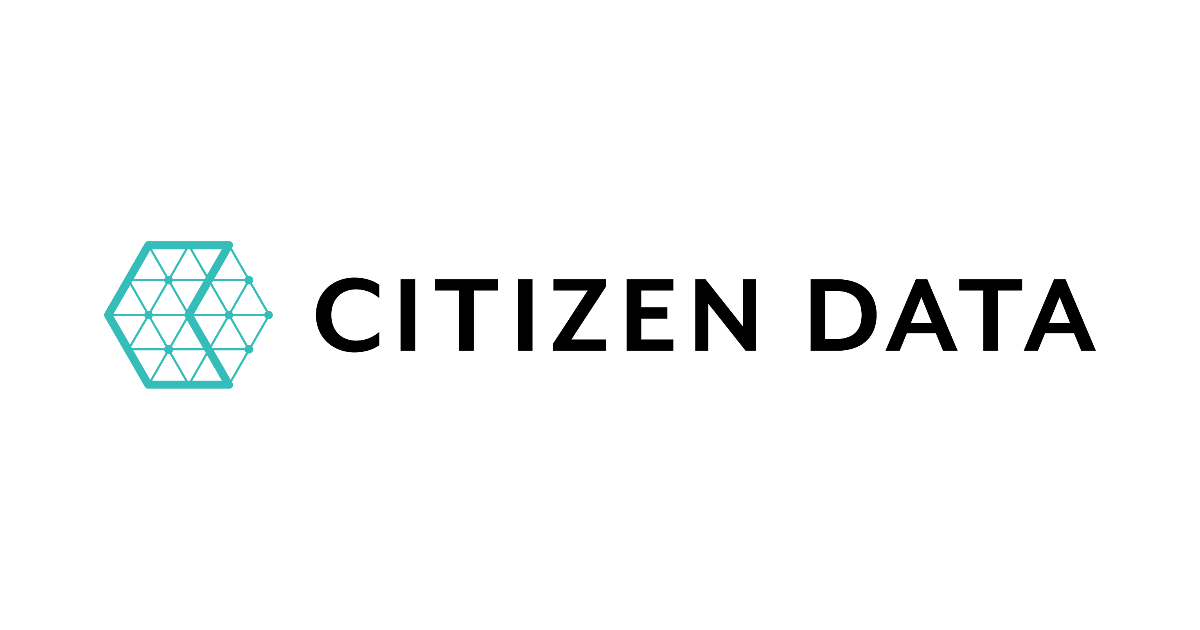Elevating The Truth Around Jan. 6 July 10, 2022
The January 6th Committee hearings highlight how close our democracy came to the brink. Will it be enough to break through the media noise and shift attitudes?

1. 43% Possibly Reachable
With non-profit Protect Democracy, we conducted a nationwide survey April 21-27 to measure baseline attitudes about the January 6th Committee and to segment Americans by current views so we could measure their shifting views over time. Three primary indicators informed our index:
- (Dis)belief Joe Biden was the legitimate winner of the 2020 elections
- Perceptions of the facts related to events on January 6th, 2021
- Attitudes towards the credibility of the January 6th committee
One’s combination of views determined which segment or persona they would fall in.
Based on our index, 27% of Americans were Jan, 6 “Affirmers” before the hearings, meaning they held fact-based beliefs on all three indicators.
An additional 43% of Americans were Jan. 6 “Reachables,” meaning they generally accepted the facts around the events but showed skepticism about the Committee’s work or credibility. With targeted and compelling messaging, this group showed movement into the “Affirmer” set of beliefs.
Finally, about 30% of Americans were “Deniers,” those who wholeheartedly rejected the facts surrounding Jan. 6.
Share this report

2. “Everyday Experts”
We also asked Americans about who they trust as information sources. “Affirmers” and “Reachables” rated “everyday experts” and, specifically, scientists and academics, with the highest levels of trust.
Both groups expressed lowest net trust towards former President Trump, religious leaders, and politicians.
That said, we noted clear differences between these categories as well. “Affirmers” tend to trust journalists and state and local officials, while “Reachables” trust their personal networks and those affiliated with the military and law enforcement.
The committee itself has called on a mix of sources that hold sway for these different segments thus far. The testimony of local and state election officials is likely to resonate with the “Affirmers,” while that of capitol police officers is likely to resonate with the “Reachables.”

3. Concerns Vary By Audience
As hearings loomed, we followed up with Americans in a May 21-27th survey to see which facts related to January 6th events mattered most to Americans.
- “Affirmers” were most reactive to the notion of attempts to overthrow the results of the 2020 election.
- “Reachables” were particularly reactive to election officials being pressured to toss out legitimate ballots, and the attempted use of fake electors.
- “Deniers” showed some concern when learning about efforts provoking and threatening political violence.
These particular January 6th-related facts seem to link the fears of many Americans about the potential overthrow of democratic institutions with those concerned with election integrity.
Data-In-Action
With an endless news cycle and disinformation rampant, it’s difficult to break through the noise to educate key segments of the public about uncomfortable truths. We recommend:
- Test early: Start with a baseline understanding of attitudes and measure progress throughout your campaign
- Identify messengers: Learn which messengers are trusted authorities
- Focus on key facts: Some facts mean more to persuadable than others
With a disciplined and data-informed communications strategy, changing minds is possible; be realistic about who you can impact and focus your strategy on audiences who are open to new information and ideas.
If you have any questions don’t hesitate to reach out. Enjoy Citizen’s Data for Democracy series? You can find past installments here.
NEW Roe v. Wade Poll Shows Bipartisan Support for SCOTUS Reform
Despite polarized reactions to Roe v. Wade, Citizen’s latest poll reveals bipartisan concern for the politicization of the Supreme Court and support for its reform.
